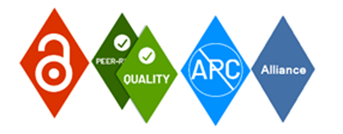A Pragmatic Analysis of Nelson Mandela’s Speech at Harvard University
DOI:
https://doi.org/10.56062/gtrs.2023.2.01.252Keywords:
Mandela’s oratory, pragmatics, politeness, public speaking, rhetorical strategies.Abstract
This article studies Nelson Mandela’s speech at Harvard University to understand his rhetorical skills. In this speech, he talks about how South Africans face disparities and injustice due to their race. He emphasizes the need for reconceptualization and redefining the economic system's precepts, which could benefit all regardless of race, gender, and ethnicity. The speech has been analyzed using Leech’s Maxims of Politeness and Aristotle’s Theory of Persuasion to investigate how rhetorical and politeness strategies have been used. The analysis shows that Mandela used Leech’s Maxims of Politeness as complementary to Aristotle’s strategies of persuasion to achieve desired communicative goals. He uses different strategies of logos and ethos to build a persuasive discourse. Besides, he uses modesty and approbation maxim and humour at the cost of self as the main strategies of politeness. Politeness complements his persuasive appeals and makes them more effective.
References
Aldosari, B. N. (2020). A critical discourse analysis of Nelson Mandela’s defense speech “I am Prepared to Die.” Arab World English Journal 11(2), 3-17.
Biography of Nelson Mandela. (n.d.). Nelson Mandela Foundation. Retrieved March 25, 2023, from http://www.nelsonmandela.org/content/page/biography
Dwivedi, A. V. (2015). Mandalian rhetoric: An analysis of Nelson Mandela’s political speeches. Linguistics and Literature Studies 3(2), 66-69.
Faris, A. A. & Paramasivam, S. (2016). Ideologies in Mandela’s ‘No Easy Walk to Freedom’. International Journal of Applied Linguistics & English Literature 5(5). doi:10.7575/aiac.ijalel.v.5n.5p.49
Kennedy, G. A. (Trans.) (2007). Aristotle on Rhetoric: A Theory of Civic Discourse (2nd ed.). Oxford: Oxford University Press.
Leech, G. N. (1983). Principles of Pragmatics. Harlow: Longman.
Mandela, N. (2014). Nelson Mandela at Harvard [Video]. http://youtu.be/6D2YSOGpen0
Mohan, B. (2016). A Demonstration of the Discourse Dissection Model (DDM) with an analysis of FD Roosevelt’s “Pearl Harbour address to the nation.” SKASE Journal of Theoretical Linguistics 13(1), 62-86. http://www.skase.sk/Volumes/JTL31/pdf_doc/05.pdf
Mohan, B. (2019). Understanding Public Speaking: A Learner’s Guide to Persuasive Oratory. New York: Routledge.
Naqeeb, T. (2018). Expressionistic techniques, critical and stylistic analysis of Nelson Mandela’s speech. Journal of Politics and International Studies 4(1), 83-90. https://prdb.pk/article/expressionistic-techniques-critical-and-stylistic-analysis-9371
Proverb definition and meaning (n.d.). Collins English Dictionary. Retrieved March 25, from https://www.collinsdictionary.com/dictionary/english/proverb.
Yule, G. (1996). Pragmatics. New York: Oxford University Press.
Downloads
Published
Issue
Section
License

This work is licensed under a Creative Commons Attribution-NonCommercial-NoDerivatives 4.0 International License.
This work is licensed under a Creative Commons Attribution-NonCommercial 4.0 International License.















